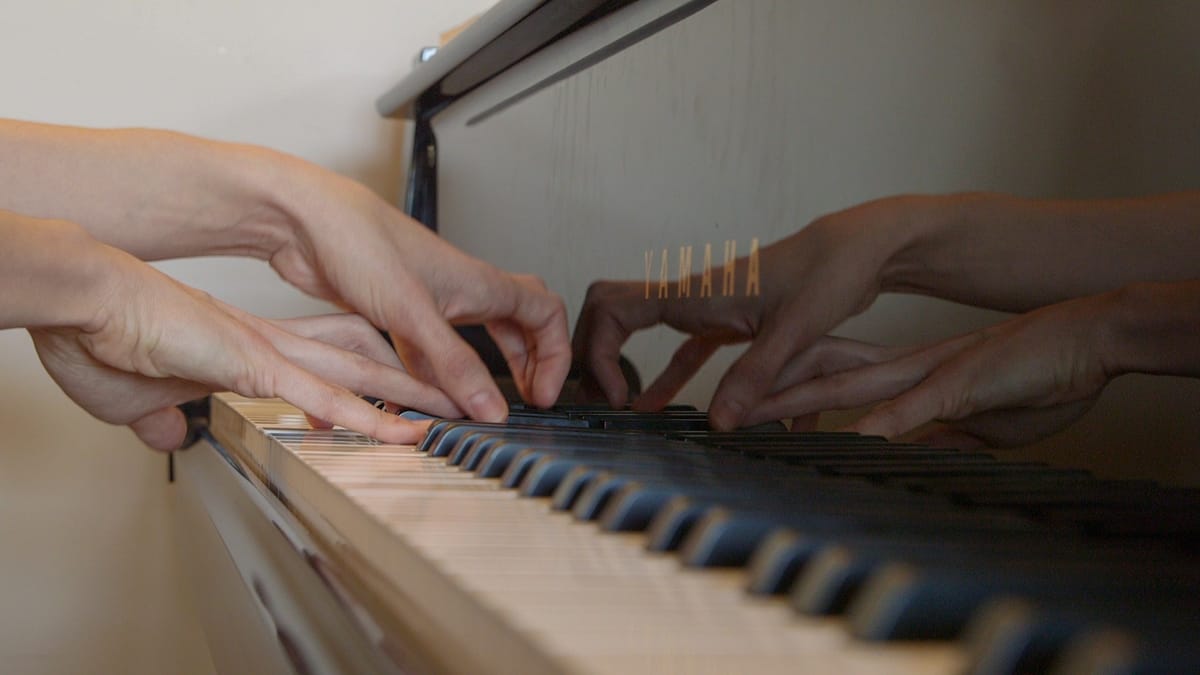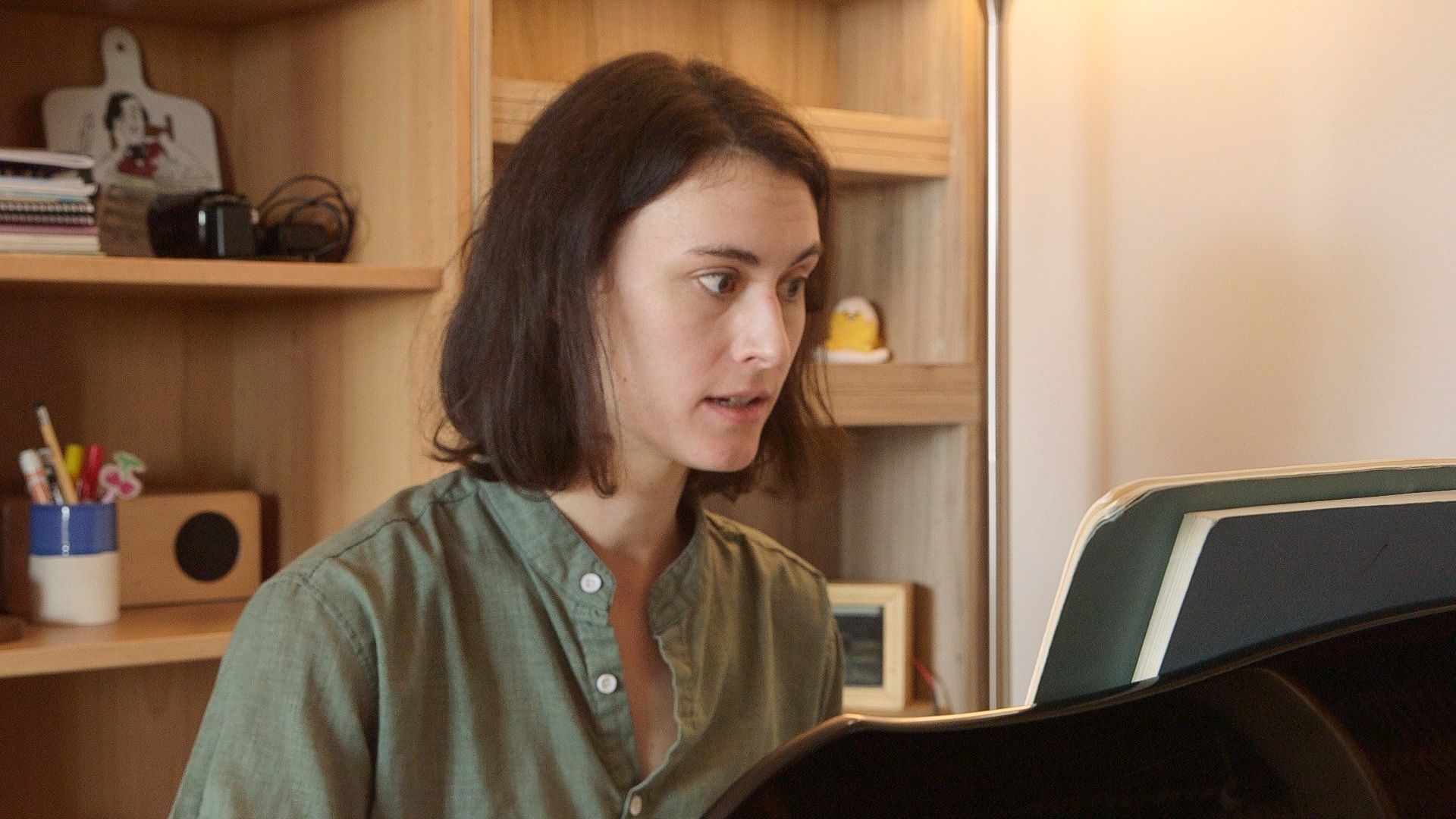Social Distancing Forces Piano Tutors To Rethink Teaching

CLINTON HILL – Sarah Dutcher sits at her dark wood Yamaha grand piano and looks to her right. A webcam captures her image atop an iMac that shows her student’s hands strut across each key. The image is a little shaky because the student’s mom is holding a smartphone to FaceTime with Dutcher for their weekly piano class.

The 34-year-old Dutcher has run her piano studio out of her Clinton Hill apartment for four years, and it is her main source of income. With the outbreak of coronavirus and the city’s declaration of emergency nearly two weeks ago, she, like many of her colleagues, is teaching online piano lessons, but some piano students are dropping their lessons.
“We’ve been working online for about a week, and now everyone’s starting to leave,” Dutcher said in a phone interview. “And so now I’m starting to be like, do I need to find another job?”
Some families have moved out of the city, while some don’t have the time for lessons between taking care of their kids and working from home, she said of the many reasons for cancellations.
Most of her students are siblings, so when one drops out, she loses the entire family. Some of these families are juggling multiple homeschooled children and full-time jobs, making it hard for them to continue with lessons, Dutcher said. Some of her students find themselves stuck at home without a piano or their workbooks, so she plans to teach those students composition and music theory with free online resources.

For students without pianos who attend Hunter College of the City University of New York, their program is providing keyboards, Geoffrey Burleson, a professor at the college, told Bklyner.
While he is not losing students, Burleson and his colleagues are discovering the technical limitations of teaching music online and learning from home.
“You can’t really do a chamber music or a band rehearsal through Zoom or video conferencing programs because you’ll go out of sync all of the time,” Burleson said.
For Burleson, who teaches one-on-one private lessons, the poor audio quality of video streaming services like Zoom limits his ability to critique his students.
“Teaching is really difficult because the piano just sounds like it’s under 100 feet of water,” Burleson said. “The complexity of the resonant piano sound with complex textures just kind of overwhelms what the system can deal with since it’s not just one voice talking at a time.”
Software like Zoom and the built-in microphones of most laptops muddle the notes. This is especially true with more complex music, he said. His solution – record yourself playing the assignment music and send it to him.
“It’s weird that if you record yourself on an iPhone and then save it as a file and send it that way, the fidelity is not too bad,” Burleson said. “But if you try to live stream it, the fidelity is terrible.”
During the lesson, Burleson reviews the student’s recording. He then asks them to play so he can critique their hand movements, posture and tempo. Like many of his colleagues, Burleson wasn’t excited to transition to remote learning, but with each lesson, he is finding the silver lining.
“Recording things in advance is a good approach, and I find this as a good opportunity for students who aren’t used to recording themselves,” he said. “They get nervous when they hit ‘record’, and they get self-conscious and make mistakes.”
Nicole Brancato, a private piano tutor in NYC, was reticent to teach her private lessons online, believing that nothing could replace the in-person lessons that she was used to.
“In some ways it can’t replace face-to-face learning, but I have been really surprised at how much you can really get done and how much you can communicate,” Brancato said. “They do things differently at home than at our lessons like bench height or posture.”
For Brancato and other piano teachers like Dutcher and Burleson, this experience has given them the chance to rethink how they teach.
“I think it allows a more acute focus from both the student and the teacher throughout the lesson because we’re always conscious about where the camera is at and if I need to move it or talk or change the sound,” Burleson said. “I find all of the lessons very stimulating.”



